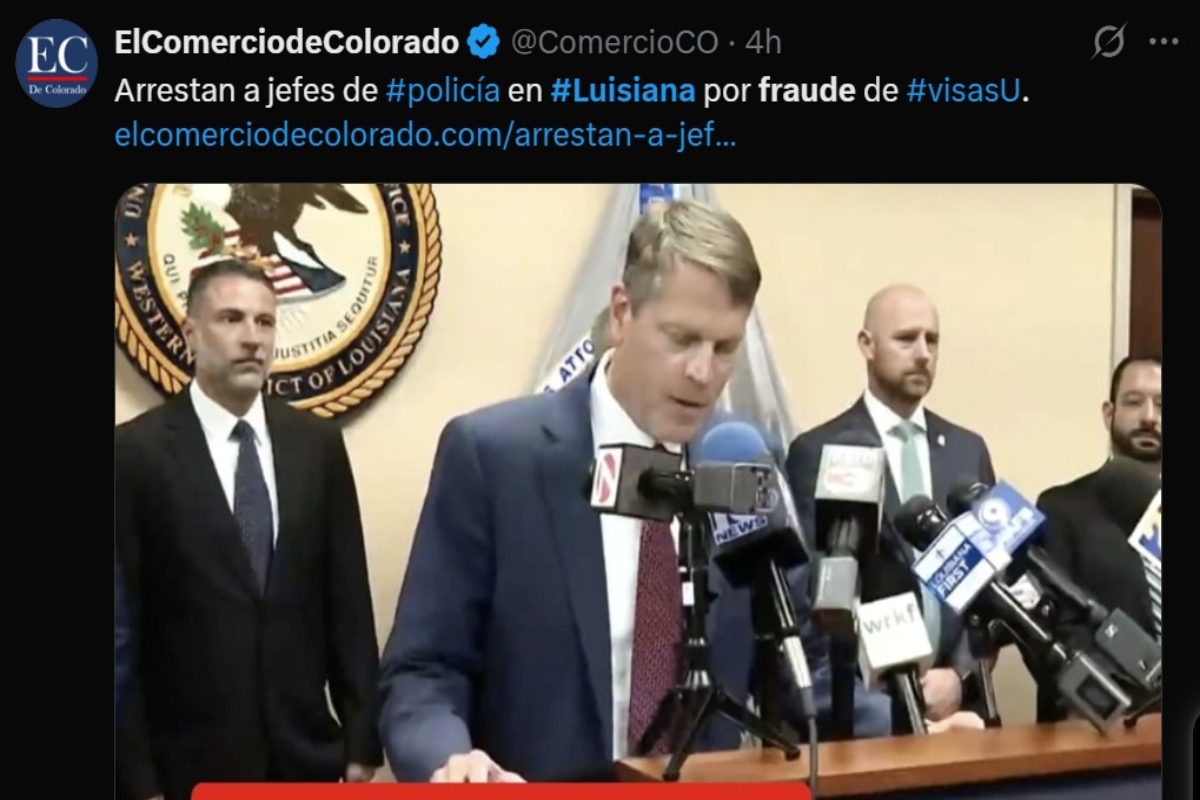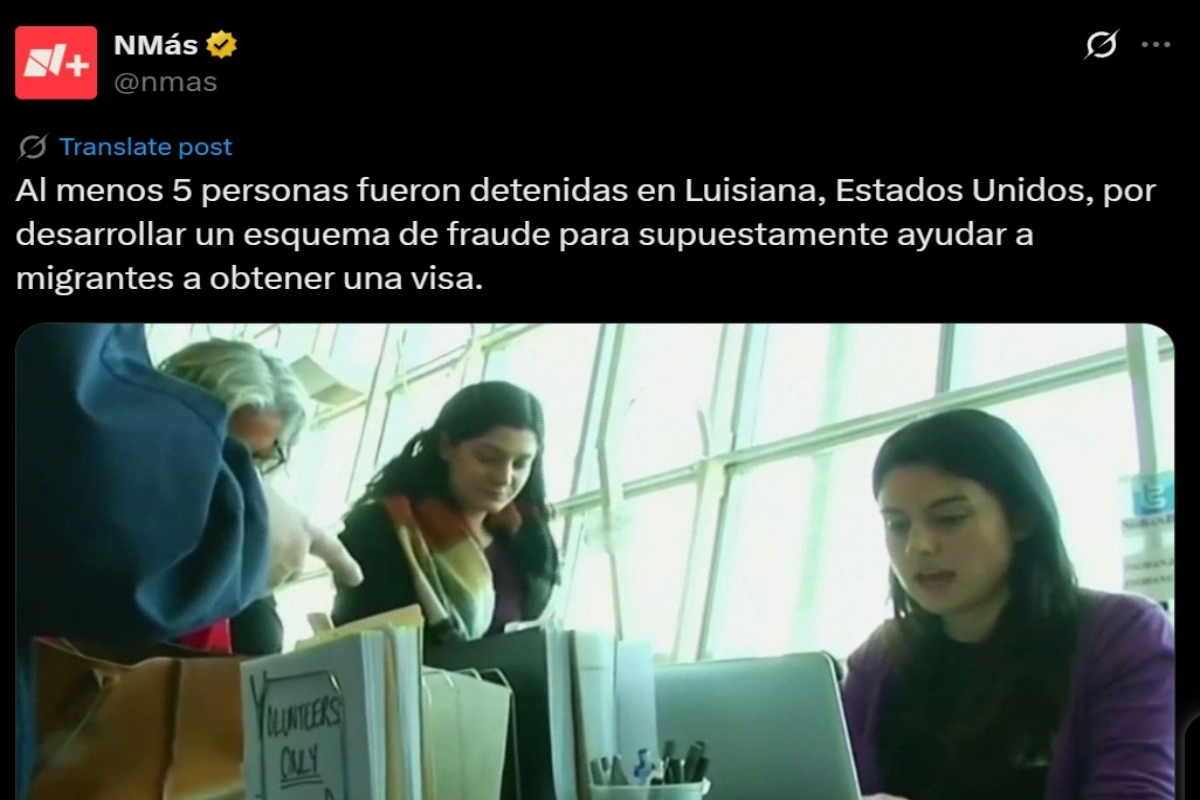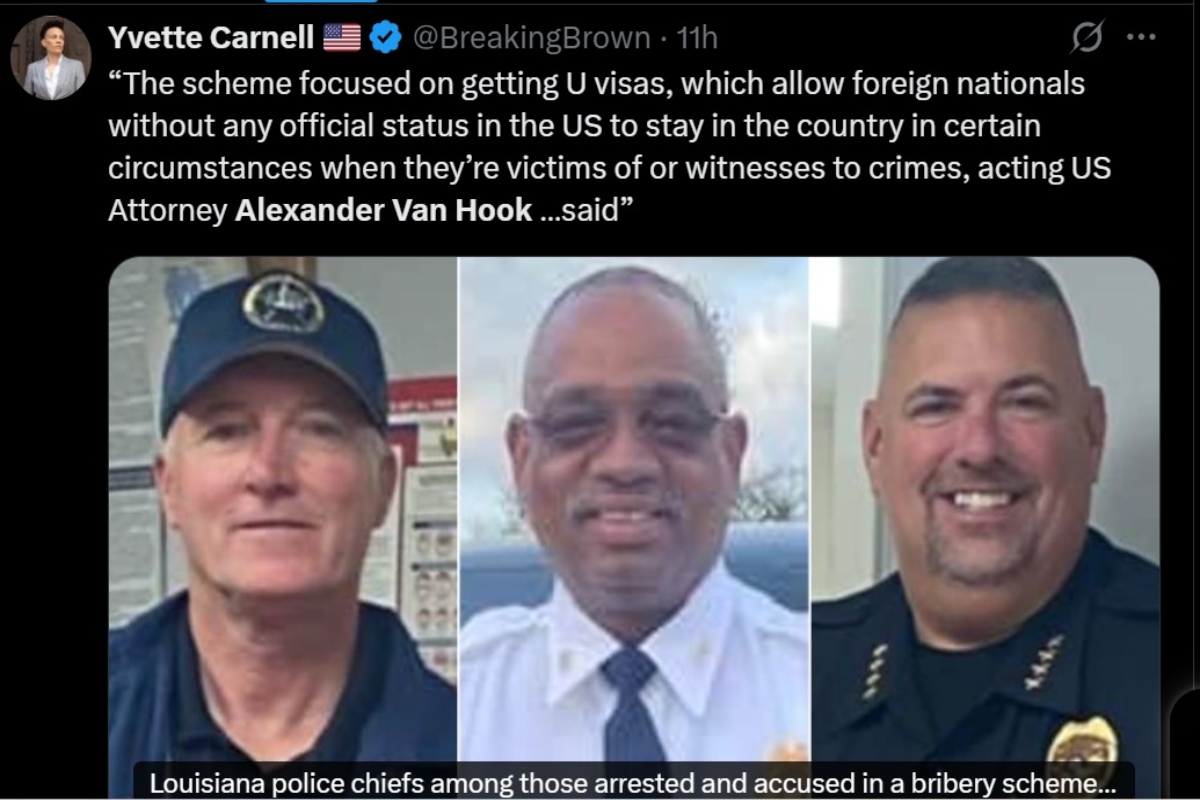In July 2025, the U.S . Department of Justice announced the arrest of five individuals in Louisiana, including three current or former police chiefs-Chad Doyle (Oakdale), Glynn Dixon (Forest Hill) and Tebo Onishea (Glenmora)-along with Sheriff Michael Slaney and businessman Chandrakant “Lala” Patel.
They are accused of conspiring to defraud the U visa program by filing false police reports for armed robberies that never occurred, in exchange for payments of up to USD 5,000 per case.
How did the scheme operate?

According to the indictment, between 2015 and 2024, those involved received payments to file reports identifying immigrants as victims of non-existent armed robberies.
Hundreds” of names were submitted on these false reports, with the intention that the migrants would obtain U visas, designed for victims of crimes that aid justice.
Prosecutor Alexander Van Hook explained that these visas allow them to work and then apply for permanent residency.
Legal consequences

The defendants face a 62-count indictment, which includes conspiracy to commit fraud, bribery, mail fraud and money laundering.
Penalties can reach up to 20 years imprisonment and fines of up to USD 250,000 per charge.
At the time of the announcement, only Patel remained in detention; the others face active court proceedings.
This case represents a red flag about how the U visa system can be abused.
It was created in 2000 to protect real victims of crimes such as domestic violence, kidnapping or sexual assault.
DHS and Human Rights Watch reports have indicated vulnerabilities in the program, but this indictment highlights large-scale corrupt use.
Community reaction

Federal authorities insisted that this is not a case of generalized corruption in the police forces, but the actions of corrupt individuals.
Hundred of names were submitted in these false reports
QuéOnnda.com
Prosecutor Van Hook stated, “We expect law enforcement officers to protect the public, not sell that trust.”
This case underscores the importance of maintaining integrity in systems that protect migrant victims and promote community justice.
For more information, visit QuéOnnda.com.























